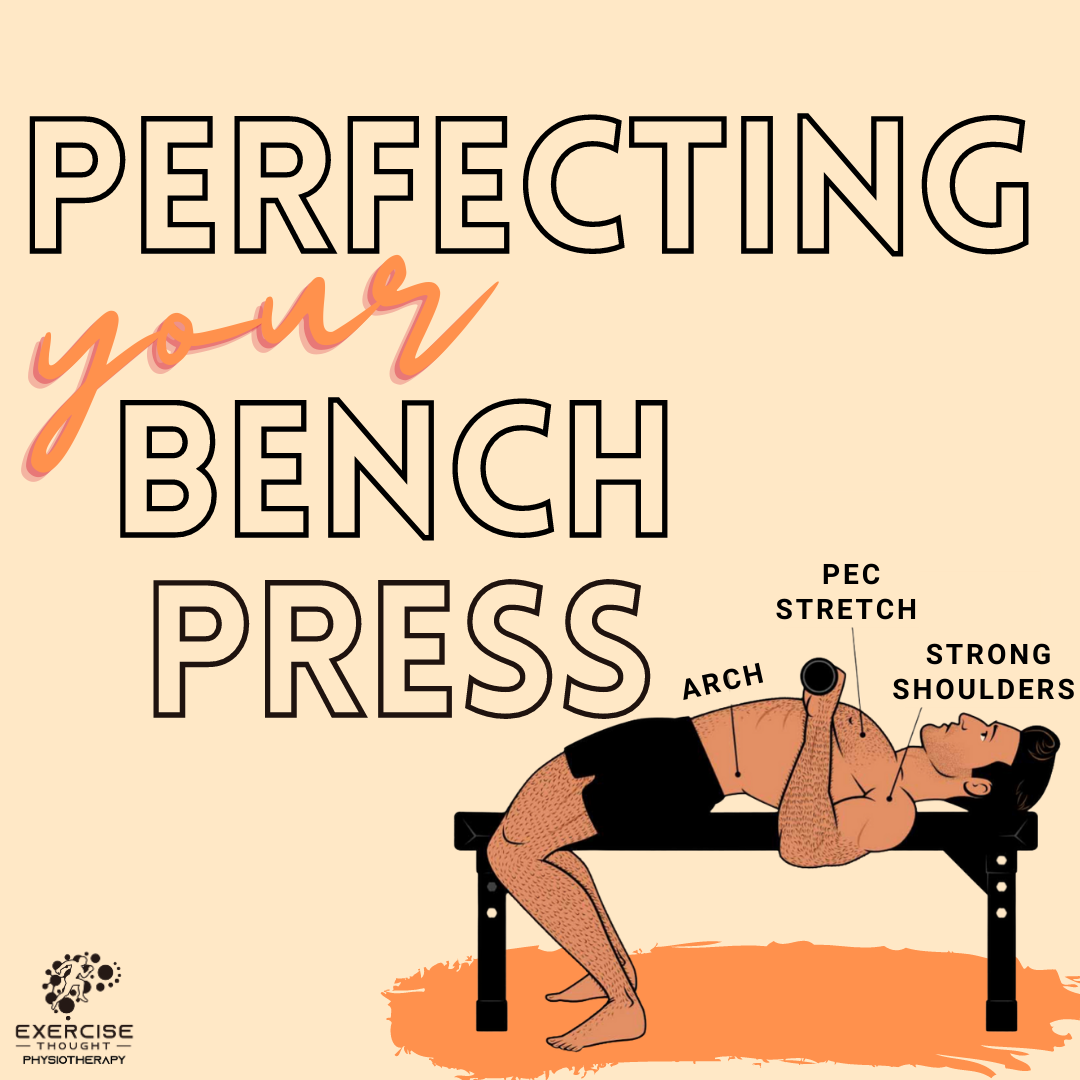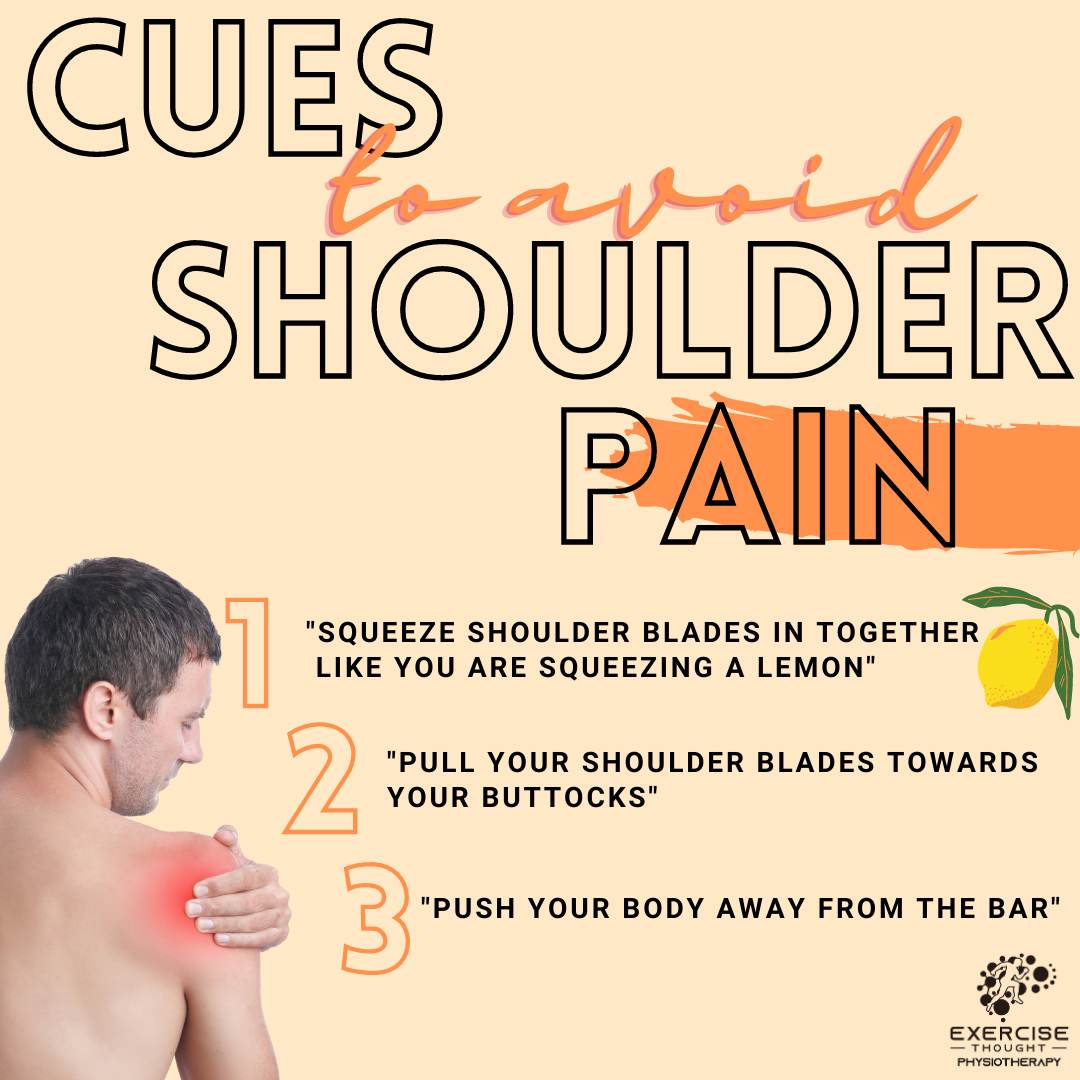Perfecting your Bench Press
Do you get shoulder pain during your bench press?
Here are some easy tips that might help!
The bench press is one of the most popular exercises at the gym, however it’s quite common for people to experience pain or ‘pinching’ in their shoulder when trying to do a heavy bench press, and we have a few easy tips that might reduce your pain.
Changing your shoulder position by “pushing yourself away from the bar”
Research shows us that if your shoulders are more abducted (elbows further sideways away from your body), the shoulder joint is in a more unstable position, creating extra tension and pinching on muscles, tendons and ligaments in the shoulder. An easy way to minimise this is to
Squeeze your shoulder blades in together (like you’re squeezing a lemon)
Pull your shoulder blades down towards your buttock
An easy way to think of this is that you’re pushing your body away from the bar, pushing your shoulders down into the bench. This allows the ball and socket of your shoulder to be in the most stable, safe position and can minimise this pain or pinching you feel.
Not only safer, but stronger!
You should find these cues also create a slight arch in your back, which occurs because you’re activating the big strong lat muscles in your back. Having these muscles working during a bench press creates a strong base in the upper back from where more force can be generated, making you stronger during your bench!
It’s also extremely important to warm up properly before bench pressing. We recommend warming up not only your chest, but all components of the shoulder including the rotator cuff muscles and lats, which should help your shoulder feel more supported during a bench press.
We hope these tips help, if you find you’re still experiencing pain that limits you at the gym, or you’d like some more information about this topic feel free to book a session with one of our physiotherapists at Exercise Thought!
References:
Green, C. M. (2007). The affect of grip width on bench press performance and risk of injury. Strength and Conditioning Journal, 29(5), 10.
Jagessar, M., Roystonia, C., & is currently an Assistant, M. J. (2018). An Investigation of the Effects of Frontal Plane Glenohumeral Joint Angle, Scapular Mobility and Lower-Back Orientation of the Horizontal Bench Press on Electromyographic Activity of Four Muscles for Male Subjects. Sport Journal.
By Liam Johns


